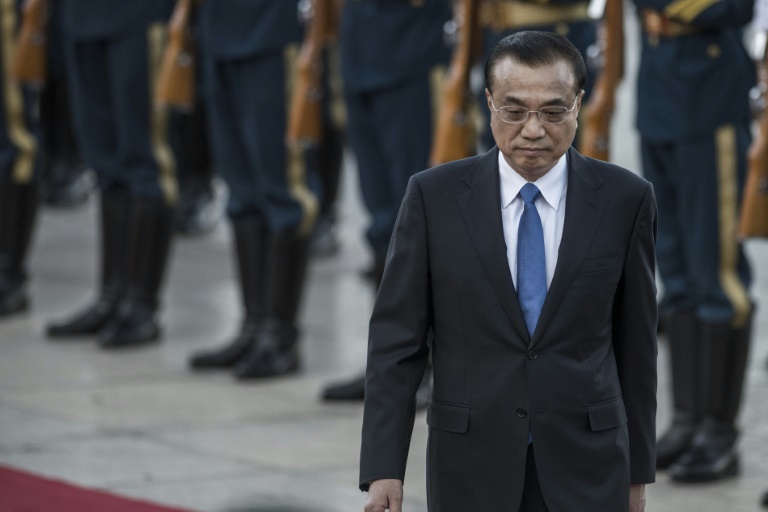As Chinese President Xi Jinping prepares for a second five-year term, foreign investors will be watching for any sign of his long-promised reforms to further open up the world's second-largest economy.
Xi will likely lay out his future economic policies on Wednesday, when he opens a five-yearly Communist Party congress that will extend his tenure as general secretary.
While he is expected to fill top posts with loyalists, analysts are divided as to whether he will use his increased powers to let the market rule or keep the state firmly in charge of the economy.
Xi has sought to cast himself as a champion of globalisation as the United States retreats behind President Donald Trump’s “America First” policy.
But foreign companies complain that his words have not been backed by deeds, as the state retains control over the economy.
US and European firms report being barred from certain sectors and forced to share their technologies with local competitors.
The EU Chamber of Commerce in China summed up the exasperation as “promise fatigue”.
Underperforming state-owned enterprises, which have saddled the economy with huge debts and overcapacity exceeding domestic demand, have been propped up or merged into massive companies.
– Premier sidelined –
Private firms, meanwhile, are being subjected to closer control by the Communist Party, via cells it deploys inside companies.
While the government is seeking to turn toward a consumption-based economy, the state has continued to fuel growth through an accumulation of debt that, according to the IMF, is on a “dangerous trajectory”.
Congress spokesman Tuo Zhen said Tuesday that China “will not slow the pace” of reforms, but he admitted there were still “tough problems to solve” such as “systemic obstacles”.
But some analysts are not convinced by such public pronouncements.

Premier Li Keqiang took office five years ago promising ‘fair treatment’ to foreign firms and a larger role for the market but analysts say he has been sidelined as President Xi Jinping has further centralised power around him
“There has been general disappointment on economic performance and direction,” said Christopher Balding, economics professor at Peking University in the southern city of Shenzhen.
“China is significantly more centralised than it was even five years ago. At this point, it would be very difficult for anyone to make a serious argument that China is seriously interested in opening up economically,” he told AFP.
When Xi took office five years ago, his premier Li Keqiang was seen as the man in charge of shepherding the economy.
Li had promised “fair treatment” to foreign firms, a larger role for the market and structural reforms in favour of the private sector.
But analysts say the premier has been sidelined as Xi has further centralised power around himself.
Li “struggled to rally support around his reformist views” and curb state-owned enterprises, but he “has clearly not been a very influential premier”, according to the Economist Intelligence Unit.
– ‘ Tough decisions’ –
Supported by his economic adviser Liu He, Xi chairs the commission leading financial and economic affairs as well as a powerful new committee devoted to reforms.
In July Xi called for “stronger financial regulation” to contain “systemic financial risks” — raising concern among analysts that this could stifle much-needed reforms.
“Xi Jinping has increasingly stressed the importance of ‘stability’ on all fronts,” Louis Kuijs of Oxford Economics said in a note.
“Bold, potentially disruptive economic reform and forceful deleveraging are not consistent with stability.”
But some are optimistic that Xi will use his new mandate and increased powers after the week-long congress to accelerate reforms.
“Mr Xi’s strengthened position will give his administration the authority to take the tough decisions necessary to tackle China’s debt overhang,” according to the Economist Intelligence Unit.
Julian Evans-Pritchard, China economist at Capital Economics, said the implementation of reform is “likely to accelerate” after the congress if Xi emerges in a stronger position.
However, the reforms adopted so far have failed to address the underlying causes of state sector inefficiency, with underperforming companies not allowed to declare bankruptcy and leave the market, Evans-Pritchard said.
“But given Xi’s reluctance to relinquish state control over key parts of the economy,” he said, “China’s structural problems are likely to remain unresolved.”






